Joshua David Bellin is stopping by to celebrate the release of his YA post-apocalyptic thriller SCAVENGER OF SOULS, a sequel to SURVIVAL COLONY 9. Check out the excerpt and the giveaway. Welcome, Joshua!

Querry Genn is running out of time. He may have saved his survival colony and defeated a nest of the monstrous Skaldi, but that doesn’t mean he has any more answers to who he is. And Querry’s mother, Aleka, isn’t talking. Instead, she’s leading the colony through a wasteland of unfamiliar territory. When they reach Aleka’s destination, everything Querry believed about his past is challenged.
In the middle of a burned-out desert, an entire compound of humans has survived with plenty of food and equipment. But the colonists find no welcome there, especially from Mercy, the granddaughter of the compound’s leader. Mercy is as tough a fighter as Querry has ever seen—and a girl as impetuous as he is careful. But the more Querry learns about Mercy and her colony, the more he uncovers the gruesome secrets that haunt Mercy’s past—and his own.
With threats mounting from the Skaldi and the other humans, Querry must grapple with the past and fight to save the future. In the thrilling conclusion to the story that began with Survival Colony 9, Joshua David Bellin narrates a tale of sacrifice, courage against overwhelming odds, and the fateful choices that define us for a lifetime.
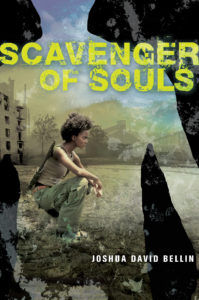 Publisher: Margaret K. McElderry Books
Publisher: Margaret K. McElderry Books
Age: 12+
Release date: August 23, 2016
For order links, visit http://joshuadavidbellin.com/my-books/
Available in hardcover and e-book
Praise for SURVIVAL COLONY 9:
Tantalizing mysteries abound among the human and inhuman inhabitants of the bleak landscape, and the post-apocalyptic plot is satisfyingly full of twists.—Booklist
Joshua David Bellin brings serious game in a post-apocalyptic thriller that collides breathless action with devious world building and genuine heart. A terrific novel!—Jonathan Maberry, New York Times bestselling author of Rot & Ruin and V-Wars
Set in a gritty post-apocalyptic world, Survival Colony 9 is both an adventure and an exploration of what it means to be human.—Margaret Peterson Haddix, New York Times bestselling author of the Missing Series
SCAVENGER OF SOULS excerpt:
© 2016 by Joshua David Bellin
Chapter One
Aleka looked out over the land and frowned.
She stood at the crest of a low hill, squinting in the sunlight, the lines deepening around her mouth. I tried to read her expression, but as usual I failed.
This was Aleka, after all. Her close-cropped, graying blond hair framed a face she could turn into a mask at a moment’s notice. I’d been studying that face for the better part of a week, and I still had no idea what was going on behind her deep gray eyes.
Aleka. My mother. And as much a mystery to me as my own past.
After a long minute she spoke the name of her second-in-command. “Soon.”
Soon, a big guy with what might have been called a pot belly in a different time, came up beside her.
Aleka surveyed the unforgiving landscape, the lazy glint of river the only sign of movement in the waste. “How long?”
“A week. Maybe two if we’re extra careful.” He searched her face, but he must have come up empty too. “Why?”
She didn’t answer. The others had edged closer, listening. Any conversation that hinted at our dwindling supply of canned goods got their attention.
But after another long look over the barren land, she turned and strode back down the hill, refusing to meet any of our eyes. Everyone watched her go in silence, until she disappeared behind a clump of rock that stood at the base of the hill.
“Well, that was enlightening,” Wali said.
There were sixteen of us, the last survivors of Survival Colony 9. Five grown-ups counting Aleka, Soon, our camp healer Tyris, our craftswoman Nekane, and the old woman whose name no one knew, a wraith with wild white hair and a threadbare shift the same drab gray-brown as our uniforms. For the past week we’d been carrying her on a homemade stretcher, while she gripped her late husband’s collection container, a scuffed, bottle-green jar overflowing with scraps of hair and fingernails. She was amazingly heavy for a woman who’d dwindled to skin and bones.
The rest of us were teens and younger. Wali, with his shaggy hair and bronzed muscles, the oldest at seventeen. Nessa, the only teenage girl left in our colony since the death of Wali’s girlfriend Korah. Then there was Adem, a tall skinny awkward guy who communicated mostly with gulps and blushes. And the little ones, seven of them total, from ragged five-year-old Keely to knowing Zataias at age ten, with straggly-haired Bea in the middle.
And that left only me. Querry Genn. Fifteen years old last week, and thanks to an accident seven months ago, with no memory of the first fourteen.
Only my mother held the secret to who I was. But she wasn’t talking.
She hadn’t said a word to me the whole week. That entire time, we’d been creeping across a desert landscape of stripped stone and yawning crevices, the scars our ancestors had cut into the face of the land. For six of those seven days we’d been carrying the old woman. Aleka had driven us at a pace unusual even for her, with only short rests at the brutal height of day and long marches deep into the night. What she was hurrying for was another thing she wouldn’t talk to me about.
When we’d left our camp by the river, the old woman had babbled on about mountains somewhere to the north, licking her lips while she talked as if she could taste the snow-fresh air. She’d described green grass as high as our knees, wind rippling across it so it seemed to shimmer like something she called satin. She’d told us about yellow flowers and purple ones, trickling water so clear you could see brightly colored fish darting among the submerged stones. Clouds, she said, blanketed the mountain peaks, cool and white and soft, unlike the oppressive brown clouds that smothered the sun but almost never rained in the world we knew. At first I refused to believe her, told myself that half of what she said had to be exaggerated or misremembered or just plain crazy. But like everyone else, I’d fallen in love with the picture she painted. None of the rest of us had seen mountains, not even Tyris, who’d been two or three years old when the wars started. After a lifetime in the desert, the prospect of mountains rearing up out of nowhere, white and purple and capped with gold from the sun, was irresistible.
By now, though, it seemed even the old woman had forgotten where we were headed. She’d lapsed into silence, except for the times she stroked her collection jar, mumbling to it. She slept most of the time, sometimes beating her hands against her chest and mouthing words no one could make out. But even when her eyes opened, her glassy expression showed no awareness of anyone or anything around her.
We set her stretcher down in the best shade we could find and stood there, waiting for Aleka to return. Nessa held the old woman’s gnarled hand and sang softly, something the old woman had sung to her when she was a kid. I tried to organize a game with the little ones, but they just flopped in the dirt, limbs flung everywhere in postures of dramatic protest. I’d learned the hard way that you couldn’t get all seven of them to do anything at once, but occasionally, if you got one of them doing something that looked interesting enough, the others couldn’t stand to be left out.
Today, though, it wasn’t going to happen. A fossil hunt usually got them going, but this time even Keely wouldn’t bite when I told him an old, rotting buffalo skull was a T. rex.
“I don’t want to play that game, Querry,” he managed weakly, before putting his head down and closing his eyes. “It’s boring.”
Without warning, Aleka stalked back to the group. To my complete surprise, she took my arm and pulled me away from the others. I stumbled to keep up with her long strides. When we reached the rock where she’d hidden herself before, she stopped, so suddenly she just about spun me around.
“Querry,” she said. “We need to talk.”
“We’ve needed to talk all week,” I said under my breath.
She heard me. She always did. “That will have to wait. This is priority.”
“Something else always is, isn’t it?”
We faced off for a moment.
“I’m asking you to be patient,” she said. “And to believe I’m working on this.”
“Fine.” I wished for once I could meet her on even ground, but she had a good six inches on me, not to mention at least thirty years. “Let me know when you’ve got it all worked out.”
If I thought I’d get a reaction from that, I was wrong. Her face went into lockdown, and I was pretty sure the conversation was over. But then she asked, “What is it you want, Querry?”
“Answers,” I said. “The truth.”
“Answers aren’t always true,” she said. “And the truth isn’t always the answer you want.”
“Whatever that means.”
She glared at me, but kept her voice in check.
“It means what it means,” she said. “For one, it means that Soon’s estimate is wildly optimistic. I’ve checked our stores, and we have only a few days of food left. If we’re even stingier than usual. Which is a risk, since there’s nothing here to supplement our supplies.”
“Why would Soon. . . .”
She ignored me. “And it means the old woman is failing. Earlier today she asked me if she could talk to Laman.”
“You’re kidding.”
“I wish I were.”
I stared at her, not knowing what to say. Laman Genn had led Survival Colony 9 for twenty-five years. But like so many of his followers, he’d died a little over a week ago, just before we set out on our journey.
Died. Been killed. I tried not to think about it, but I remembered the nest, the bloody wound in his side, the creature that had torn him open.
The Skaldi.
The ones we’d been fleeing all our lives. Monsters with the ability to consume and mimic human hosts. It was hard to believe anyone could forget them. Even though we’d destroyed their nest, I kept expecting them to reappear, like a second nightmare that catches you when you think you’re awake and drags you back under.
“Any more good news?” I said, trying to smile.
She didn’t return the offering. “The children are failing too,” she said. “Keely and Beatrice especially. If we run out of solid food. . . . We forget how fragile they are. And how many of the little ones simply don’t make it.”
I turned to look at the kids, lying on the ground like so many dusty garlands. “What can we do?”
She didn’t say anything for a long time, and her gaze left mine, drifting to the desert beyond. I thought she wasn’t going to answer when her voice came again, as far away as her eyes.
“I know this area,” she said. “Or at least, I did. None of the others has been here—Laman seems to have avoided it assiduously. But I was here, once upon a time. So long ago the details are fuzzy. Either that or it’s . . . changed.”
I glanced around us, as if I expected to see something I hadn’t noticed before. “Why didn’t you tell anyone?”
Her shoulders inched in the slightest of shrugs. “I didn’t want to give anyone false hope. They were excited enough about the mountains. And I wasn’t sure I could find it again. I’m still not sure.”
“What is it?”
She waved vaguely toward the northwest. “A sanctuary, or as much of one as we’re likely to find in this world. Not mountains, but a canyon. Shaded, protected from the worst damage of the wars. The river gains strength as it flows through, nourishing what grows on its banks. If we could only reach it, there might be a chance for the most vulnerable members of the colony.”
I studied her face, as still and remote as the surface of the moon. This time, though, I thought I caught something there.
“If this place is so great,” I said carefully, “why did Laman stay away from it?”
Her eyes snapped to mine, and for the briefest second I imagined I saw a glimmer of fear.
About the Author:
Joshua David Bellin has been writing novels since he was eight years old (though the first few were admittedly very short). He taught college for twenty years, wrote a bunch of books for college students, then decided to return to fiction. Survival Colony 9 is his first novel, with the sequel, Scavenger of Souls, set to release on August 23, 2016. A third YA science fiction novel, the deep-space adventure/romance Freefall, will appear in 2017.
Josh loves to read, watch movies, and spend time in Nature with his kids. Oh, yeah, and he likes monsters. Really scary monsters.
To find out more about Josh and his books, visit him at the following:
Website: http://www.joshuadavidbellin.com
Blog: http://theyaguy.blogspot.com/
Twitter: http://twitter.com/TheYAGuy
Facebook: http://www.facebook.com/joshuadavidbellin
Goodreads: https://www.goodreads.com/author/show/7393959.Joshua_David_Bellin
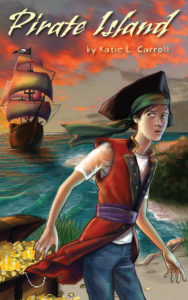 So by now most of you know that I have a book coming out soon (since I’ve been talking about it ad nauseam here!), my middle grade adventure PIRATE ISLAND. The paperback and e-book are available for pre-order on all the major book selling sites. And while it doesn’t officially release until October 17, I will have copies for sale at Indie Author Day at the Norwalk Public Library!
So by now most of you know that I have a book coming out soon (since I’ve been talking about it ad nauseam here!), my middle grade adventure PIRATE ISLAND. The paperback and e-book are available for pre-order on all the major book selling sites. And while it doesn’t officially release until October 17, I will have copies for sale at Indie Author Day at the Norwalk Public Library! 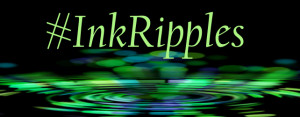


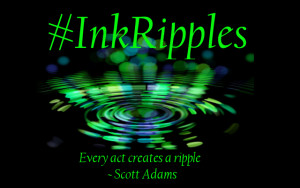
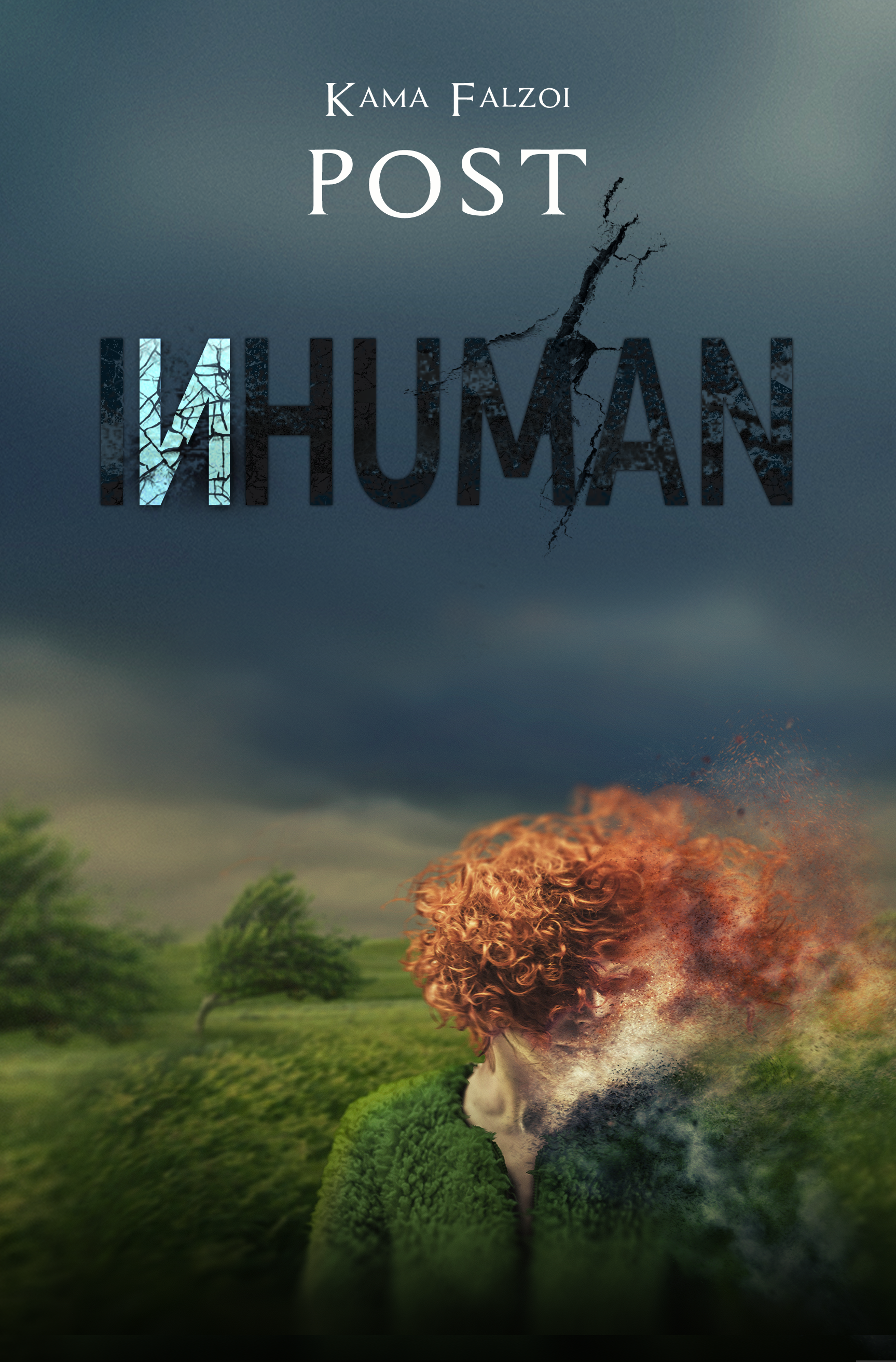
 Kama Falzoi Post is a functioning member of society, a part-time introvert, a pinnacle of contradictions, the mother of a hurricane, a step-mother, and an author. She enjoys drinking red wine and then drinking more red wine, listening to music that moves her, and taking things too far.
Kama Falzoi Post is a functioning member of society, a part-time introvert, a pinnacle of contradictions, the mother of a hurricane, a step-mother, and an author. She enjoys drinking red wine and then drinking more red wine, listening to music that moves her, and taking things too far.




















